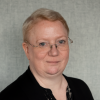With a total budget of roughly NOK 176 million, the initiative spans a wide range of research topics, from narwhal tusks to smart textiles to historical perspectives on pandemics.
Interdisciplinary research
The value of interdisciplinarity is widely recognised amid the rising global demand for research projects that extend across traditional boundaries between research areas and disciplines. Combining methods, data, perspectives, concepts and theories from different disciplines is crucial for producing new, valuable knowledge.
Here in the Nordic region as well, research with an interdisciplinary approach is important.
Professor of Mathematics Jan Philip Solovej is on the Committee of NordForsk’s Initiative for Interdisciplinary Research. He believes that strengthening interdisciplinarity is vital in order to generate synergies in the interfaces between the disciplines and a broader-based perspective. According to the professor, these synergies occur naturally when projects transcend a monodisciplinary research approach. Nordic cooperation provides greater opportunity to exploit the variety and depth of scientific expertise held across the Nordic countries.
Professor Solovej also says that these projects generate Nordic added value in a number of ways. “Some projects strengthen Nordic research cooperation and build Nordic expertise within important research fields, while others directly address Nordic topics such as Arctic research or studies related to Nordic languages.”
Director of NordForsk Arne Flåøyen says:
“Traditionally, researchers work within their own disciplines, but many research breakthroughs occur when researchers from different disciplines work together to solve a problem. Interdisciplinary research requires a different form of work and collaboration than when working within a single discipline. With this announcement, NordForsk has prompted researchers to think and work creatively across disciplines, and I am sure that we will get exciting results that will create Nordic added value.”
Record number of grant applications
In the first round of the grant application process, with a submission deadline nearly a year ago, NordForsk received a record number of applications: 337 grant proposals. Now, after the second application round, 12 projects have been awarded funding.
Jan Philip Solovej praised the high quality of grant applications. “It was impressive how many extraordinary proposals we received. Narrowing the field down to the very best ones was truly difficult, but the international panels did a superb job. One funding requirement was that projects had to incorporate interdisciplinary research with Nordic cooperation. But once that prerequisite was satisfied, scientific excellence was the most important criterion. It is a pleasure to see so much scientific diversity among the selected projects.”
Anna Herou agrees. She is a Senior Adviser at NordForsk and is responsible for the Initiative for Interdisciplinary Research.
“This was the highest number of grant applications ever
received for a NordForsk call,” says Ms Herou. “The sheer volume shows there is
widespread interest in interdisciplinary research in the Nordic countries, and
that there is a need for this kind of funding.”
Nordic funders of research
The Nordic Initiative for Interdisciplinary Research is a collaborative effort between: the Independent Research Fund Denmark; Formas of Sweden; the Swedish Research Council; the Icelandic Centre for Research - Rannís; the Swedish Research Council for Health, Working Life and Welfare (Forte); the Research Council of Norway; the Academy of Finland; and NordForsk.
The 12 new research projects
The 12 newly funded projects involve researchers from Denmark, Finland, Greenland, Iceland, Norway and Sweden. Also taking part from outside the Nordic region are researchers from Germany, Tajikistan, Russia and the US.
- Facilitation Robotics for Teams Foundational Research on Group Processes in Human-Robot Ensembles with Social Robots (S-FACTOR)
Project Leader: Johanna Seibt, Aarhus University
Participating countries: Denmark, Finland and Sweden
- Graphene-based drug delivery systems for treating MRSA infections
Project Leader: Ivan Mijakovic, Chalmers University of Technology
Participating countries: Denmark, Norway and Sweden
- Grappling with Uncertainty in Environments Signaling Spurious Experiential Decisions
Project Leader: Audun Hetland, UiT The Arctic University of Norway
Participating countries: Finland, Germany, Norway, Sweden and the US
- Green forests policies: a comparative assessment of outcomes and trade-offs across Fenno-Scandinavia
Project Leader: Nils Droste, Lund University
Participating countries: Denmark, Finland and Sweden
- Narwhal tusks: a tale with a twist
Project Leader: Henrik Birkedal, Aarhus University
Participating countries: Denmark, Greenland and Sweden
- Nordic network on smart light-conversion textiles beyond electric circuits
Project Leader: Jaana Annina Vapaavuori, Aalto University
Participating countries: Denmark, Finland, Iceland and Sweden
- Nordic Refugee Determination: Advancing Data Science in Migration Law (NoRDASiL)
Project Leader: Thomas Gammeltoft-Hansen, University of Copenhagen
Participating countries: Denmark, Norway and Sweden
- Pathogens, Pandemics and the Development of Nordic Societies
Project Leader: Lone Simonsen, Roskilde University
Participating countries: Denmark , Finland, Norway and Sweden
- Technology-enhanced foreign and second-language learning of Nordic languages
Project Leader: Mikko Kurimo, Aalto University
Participating countries: Finland, Norway and Sweden
- The Network Dynamics of Ethnic Integration
Project Leader: Carl Nordlund, Linköping University
Participating countries: Denmark, Finland and Sweden
- The timing and ecology of the human occupation of Central Asia
Project Leader: Jan-Pieter Buylaert, Technical University of Denmark (DTU)
Participating countries: Denmark, Norway, Sweden, Russia and Tajikistan
- Unconventional methods to inform sustainable design: Mediating the needs of people and nature in Nordic after-dark environments
Project Leader: Ute Besenecker, KTH Royal Institute of Technology
Participating countries: Finland, Norway and Sweden


